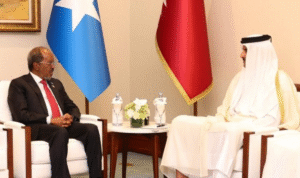In a stunning disclosure that reverberates across the Middle East, recently unsealed documents reveal how Israeli intelligence successfully infiltrated Hezbollah over several decades. The revelations, brought to light by AQRI.net, highlight the painstaking and high-stakes operations carried out by Israeli agents to monitor and dismantle Hezbollah’s activities.
According to these documents, Israel utilized various sophisticated espionage techniques, including cyber espionage, human intelligence, and strategic asset placement, allowing them to access communication channels and internal operations of Hezbollah. The intelligence gathered reportedly enabled Israel to prevent numerous potential attacks, disrupt supply lines, and gain crucial insights into Hezbollah’s organizational structure and future plans.
These developments come at a time of heightened tension and underline the complex and covert nature of Israeli intelligence operations in safeguarding national security. The documents detail how agents, often at great personal risk, managed to create an extensive network of informants and double agents, some of whom operated at the very core of Hezbollah’s hierarchy.
The exposure of these operations has prompted widespread discussion among intelligence and security analysts. While the disclosure underlines the prowess of Israeli espionage capabilities, it also raises questions about Hezbollah’s internal security measures and how such infiltration went undetected for so long.
Further, the revelations could have profound implications for regional dynamics, potentially altering the strategic calculus of Hezbollah and its allies. The group, known for its sophisticated operations and resilient leadership, might now be compelled to overhaul its security protocols in response to these disclosures.
Israeli officials, responding to queries, have neither confirmed nor denied the specifics contained in the reports, adhering to their long-standing policy of ambiguity regarding intelligence operations. Meanwhile, Hezbollah has yet to issue an official statement addressing these claims.
This incident underscores the enduring espionage battles played out in the shadows, illustrating the high stakes involved in maintaining security and the lengths to which nations will go to defend their interests. As the region awaits the likely reverberations from these revelations, the story adds another layer to the complex geopolitical landscape of the Middle East, where espionage remains a critical tool of statecraft.







Comment